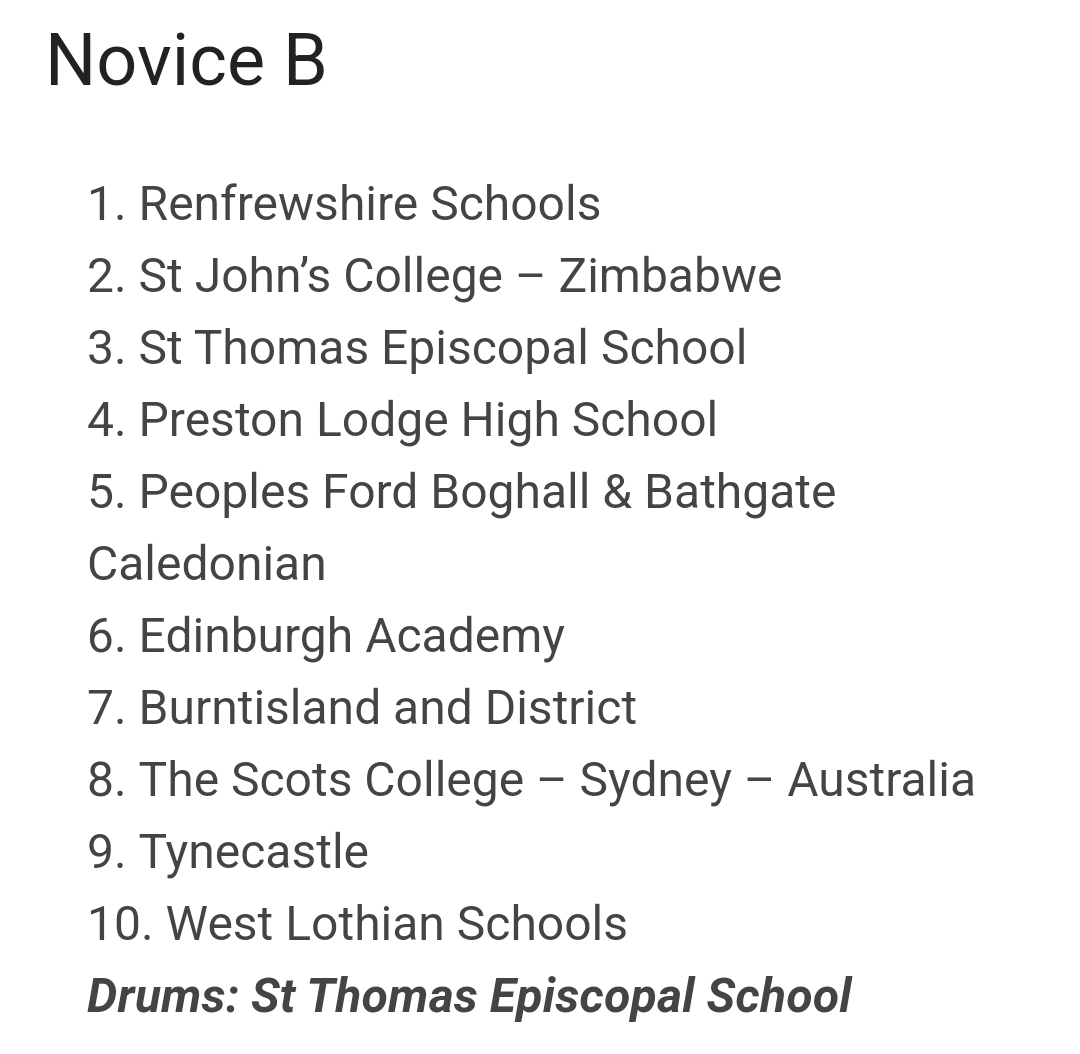INNOCENT VEREMU
St John's High School from Zimbabwe has once again made waves in the pipe band community, winning the prestigious competition recently held in Glasgow, Scotland.
The school emerged in second place in the Novice B category.
This is not the first time the school has achieved such an honor; they also emerged victorious in 2018.
However, the recent win has stirred up some controversy and raised a few eyebrows.
St John's High School, located in Zimbabwe, is primarily attended by white students, with only a small number of black students. Moreover, the school's fees are considered high, allowing them to afford annual tours to different countries. These factors have contributed to the perception that the school holds certain advantages over others when it comes to participating in competitions and showcasing their pipe band talent.
Zimbabwe's pipe band tradition traces back to Churchill Boys High School, which had the first school pipe band in the country.
In fact, Churchill Boys High School's pipe band once earned a spot in the Guinness Book of Records for the longest piping hours. Pipers Neville Workman, Patrick Forth, Paul Harris, and Clive Higgins blew their pipes continuously for a combined 100 hours in July 1976, surpassing the previous record of 80 hours.
Despite this rich history, St John's High School is not the only school in Zimbabwe keeping the pipe band tradition alive. Prince Edward, Lomagundi, Peter House, and twelve other schools in the country also nurture and uphold this musical tradition.
The recent victory of St John's High School in Scotland, beating the originators of pipe band music, has caused some to question the validity of their achievement.
Many find it difficult to believe that a school from Zimbabwe could outperform the originators of this art form.
The implications of such a win extend beyond the realm of music and competition, prompting people to wonder if Zimbabwe should be allowed to partake in other traditional practices as well.
For instance, a particular concern arises around the cultural practice of muchongoyo. Derived from the Ndau language, "muchongoyo" means stomping of feet.
Historically, muchongoyo was a war dance performed by warriors both to instill discipline before battle and to celebrate victory afterward. The vigorous stomping of feet served as a powerful symbol of unity and strength.
When considering the preservation of traditions, some individuals question if allowing St John's High School to excel in pipe band competitions diminishes the significance of other culturally significant practices. The fear expressed by some is that if Zimbabweans can beat the Scottish at their own game, what is to stop the Scots from overshadowing and potentially diluting Zimbabwean cultural traditions such as muchongoyo?
The debate surrounding St John's High School's success in the pipe band competition in Glasgow brings complex questions of cultural preservation to the forefront.
While the students' achievement deserves recognition, it is crucial to continue the dialogue regarding the balance between embracing new experiences and preserving one's cultural heritage.
As Zimbabwe's unique traditions continue to evolve, it is essential to find a way to celebrate and protect them without compromising their authenticity.


.jpg)





.jpg)





.jpg)




.jpg)



0 Comments